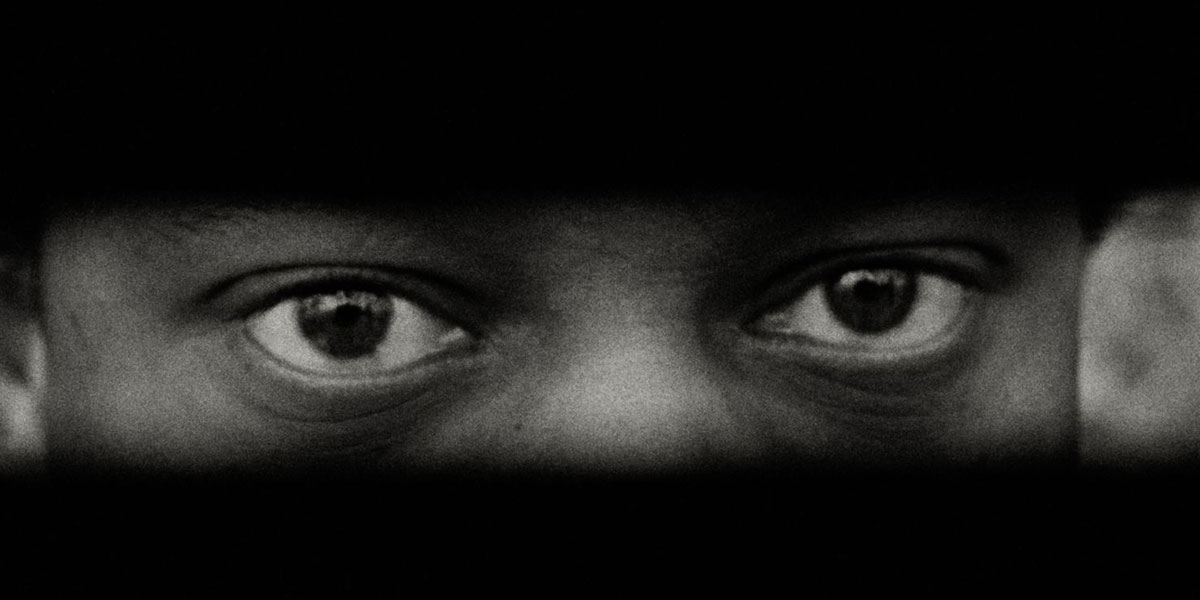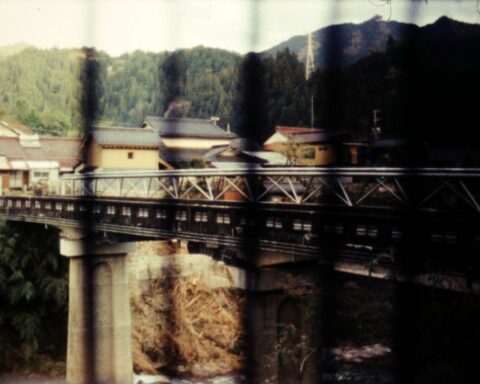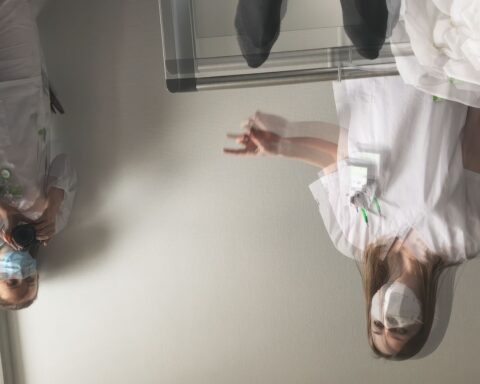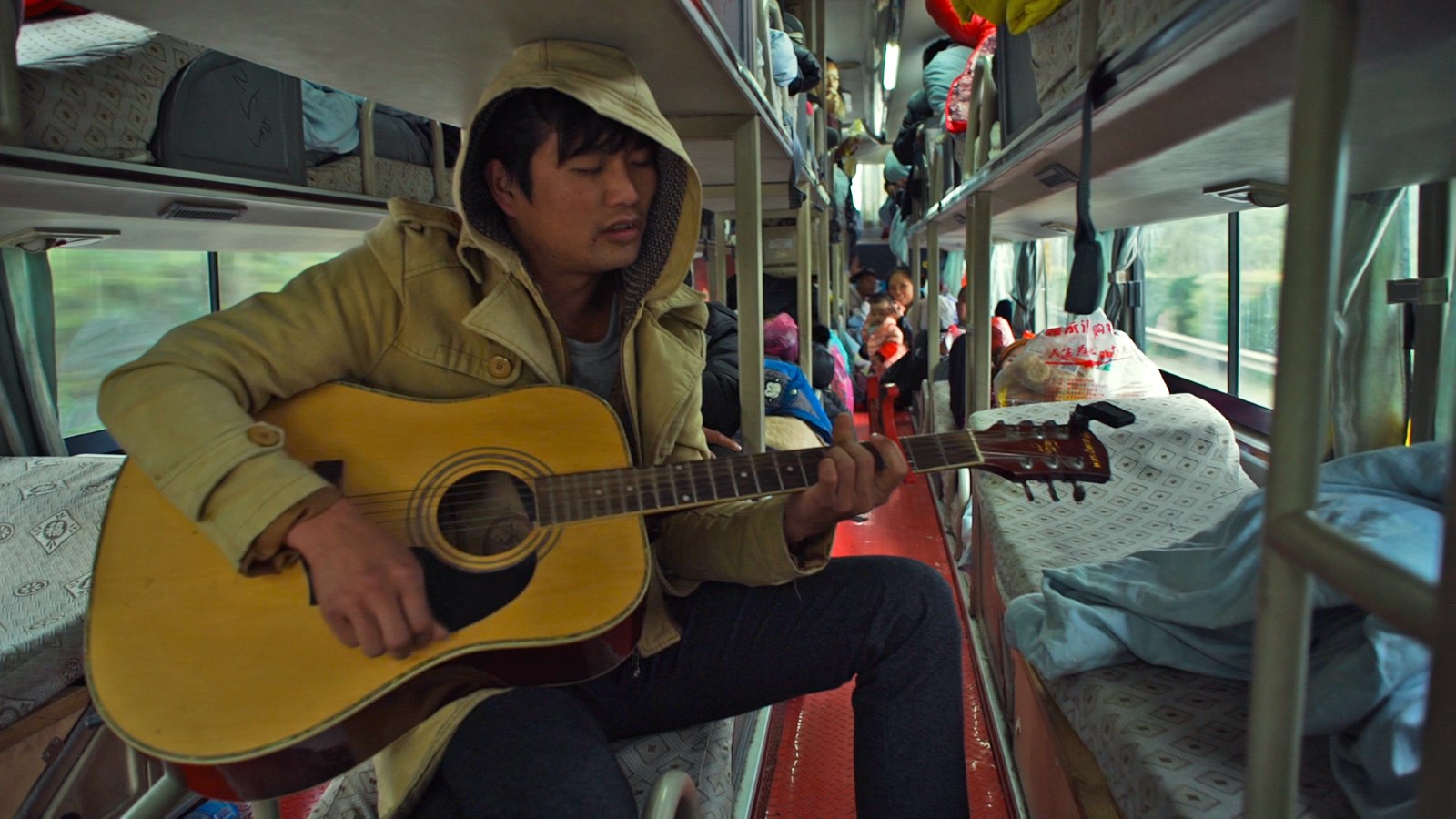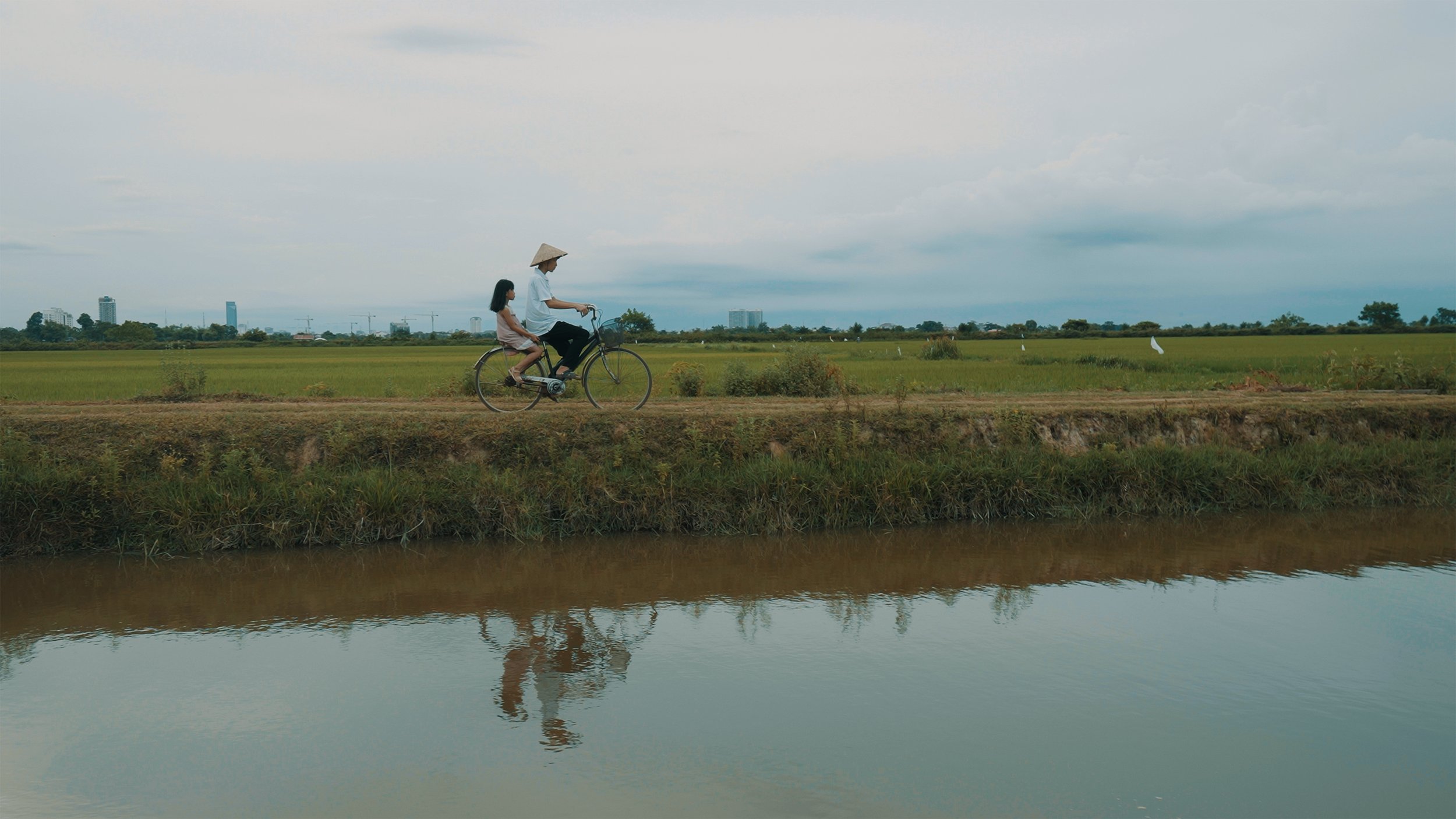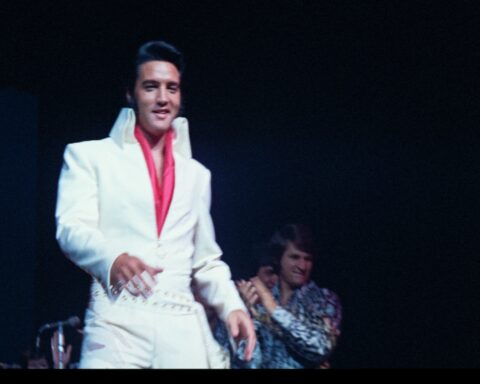Helke Sander, Harun Farocki, and Wolfgang Petersen. These are just a few notable names from the inaugural graduating cohort of the German Film and Television Academy Berlin (DFFB). Whereas the aforementioned filmmakers eventually received their fair share of international recognition, one notable graduate stands out from the Germanic crowd. Born in Baltimore, American filmmaker, cinematographer, photographer, and educator Skip Norman (born Wilbert Reuben Norman Jr.) studied at the academy beginning in 1966, its inaugural year of operations, and graduated in 1969. Unlike his most famous peers, his work has largely gone unnoticed.
Skip Norman’s oeuvre of documentaries, essay films, and experimental cinema largely focuses on Black experiences in West Germany and his home country. Norman famously condemned America’s senseless war in Vietnam. Through a Marxist lens, his films provide structuralist critiques to issues such as Black disenfranchisement and systemic racism. He also worked as a director of photography on various politically motivated productions, which further developed his revolutionary voice. After nearly sixty-years since his filmmaking debut, Norman’s eclectic filmography has finally been restored for public viewing. Thanks to recent digitizations funded by the German film heritage program, the work of Skip Norman will soon reach a greater audience of dedicated cinephiles.
Humble Baltimore Beginnings
On December 23rd, 1933, Ida and Wilbert Norman brought their first child, Wilbert, into the world. Known to friends as Skip, the young child experienced segregation during his childhood years. His family would move to Washington DC, where Norman would spend the majority of his youth.
Originally, Norman didn’t plan to study arts when beginning his formal education. In 1961, after graduating high school with an abitur to study abroad, Norman received a scholarship from the University of Göttingen. He was enrolled with the faculty of philosophy and studied German language and literature. In his academic career, Norman began to develop an interest in theatre. Through the department of German studies, he acquired a membership with the university’s dramaturgy department. The membership allowed Norman to work as a director, assistant director, stage manager, performer, set designer, and sound engineer.
In 1964, Norman changed his field of study to medicine. A year later, he would later drop out of the program. From November 1964 to February 1965, Norman performed on every stage in the township, including the Deutsches Theater Göttingen and Junges Theater Göttingen. Notably, Norman even collaborated with actor Bruno Ganz (Downfall, Wings of Desire) before he became the star we know today.
During the winter of 1965, he travelled to Denmark in search of work and found employment at a small metalworking factory. At the same time, he began to take interest in film. He would later apply to the DFFB, where he was accepted in the spring of 1966.
During the first year of his studies, Norman was one of 35 students enrolled with the academy. There were high expectations from the faculty, as the DFFB was the first film school of its kind in West Germany. With the expansion of public television, demand for industry trained professionals was growing. However, the teachers of the school were also adapting to their new institutional methods. Students were given broad reality exercises in which they predominantly worked within the documentary tradition.
Freshman Films (and Other Stories)
During his first year, Norman was enthusiastic to collaborate with his peers. He worked on a handful of exercise films as a camera assistant and crew member. He was considered as one of the hardest working students at the academy. Norman worked on 27 DFFB films. He wasn’t afraid to participate in political productions. In Break the Power of the Manipulators (1968), director Helke Sanders weaponised her camera as a tool to overthrow society. Norman was the cinematographer on the production. The film infamously documents a protest within a lavish press ball hosted by politicians and businessmen. Sanders and her crew protested with a banner, which read “Make politics with money – make money with politics.” The team was arrested onsite, as they were escorted out of the Palais am Funkturm.

While working with a handful of his peers, Norman directed and briefly starred in his debut short film Riffi (1966). At the start of the film, a dazed young man speaks candidly to the camera. He begins to tell a story about an encounter with a woman named Dania. Breaking away from the non-fiction interview, Norman suddenly shifts to a different character. We see a mysterious man sleeping in his apartment. In the man’s abode, the ambiguous narrative begins to emulate the protagonist’s subconscious. His frailty conjures a passionate wet dream, as the camera spins in a 360° rotation. The sexual pleasure from the protagonist’s fictitious fantasy amounts to a sudden act of drunken violence.
Instantly, the violent act radically detours Norman’s narrative. Noirish dread consumes the Berlin cityscape, as the nameless protagonist wanderers the grimy streets. Riffi is a clever exercise in the art of subversion. The film cleverly mixes romance, noir, and documentary traditions to disorient the spectator. The film refuses a singular label. Instead, it deconstructs the male gaze through its anticlimactic resolution. In Norman’s universe, the culmination of lust and desire coincides with the pursuit of violence. Both concepts are one and the same.
On Blues People and Pornography
Despite the promise offered by the first year of studies, conflict arose at the end of the term when the academy’s management placed the students’ films under a performance check. The DFFB was allowed to release students due to its status as a private institution. Norman passed. However, six of his classmates failed the evaluation. Many peers theorised the academy rejected their classmates due to their political values and the students retaliated against the DFFB at the 17th Berlin Film Festival. The management eventually gave in and allowed the expelled students to return, but the experience didn’t deter Norman from preserving a sharp political perspective in his future work.
On June 2 1967, Norman’s first year was halted following the death of West German university student Benno Ohnesorg, was shot to death by police officer Karl-Heinz Kurras while demonstrating against the Shah of Iran, Mohammad Reza Pahlavi. The murder resulted in the mass mobilisation of West Germany’s student population. Through the involvement of Thomas Giefer and Hans-Rüdiger Minow, the DFFB began to take political action with student produced work. Norman participated by criticising American imperialism and systemic racism with his filmography. In the final years of his study, he directed three unique short films.

Inspired by Amiri Baraka’s Negro Music in White America (1963), Norman’s Blues People (1969) examines the relationship between Black and white bodies through a fetishistic gaze. Implementing classic blues songs such as “Whoa Buck” by the South Carolina Chain Gang and “I Ain’t Gonna Play No Second Fiddle” by Bessie Smith, Norman evaluates the cultural significance of the needle drops within his languid narrative. Blues People deconstructs the archetypal on-screen relationship through the character’s micro-aggressive dialogue. The film depicts an explicit sexual encounter between a white woman and a Black man and draws a narratively that stems from Baraka’s play The Dutchman (1964). Unsimulated sexual acts interrogate the privileges, prejudices, and oppression at the helm of the mixed-race relationship. The camera lingers on the relaxed nude bodies while juxtaposing the dialogue fuelled by racial dynamics. Blues People is a film about power and intimacy, told with a provocative directorial vision.
At the time of its release, the film was accused of pornography. Whereas some scholars such as Dr. Gerd Albrecht, Jochen Schmidt, and Hans Günter Pflaum defended the film for its cinematic radicalness, other Germanic critics criticised the sexually explicit images. The Bavarian Broadcasting Company refused to air the film. The network claimed that Norman’s long takes of buttocks and genitals were pornographic. The film endures as a provocative treatise on race relations and the power of the gaze.

Black Panthers in West Germany
Notably, Norman brought the iconography of the Black Panther movement to West Germany with his student work. For example, his short Cultural Nationalism (1968) begins with the image of a snowy landscape accompanied by an audio recording from Black Panther co-founder Bobby Seale. His speech dissects the American education system by describing the promotion of state-authored history as a political program. His voiceover also interrogates the commodification of Black culture and its relationship with the flow of commerce. Seale’s Marxist cadence is matched with Norman’s patient pans and delicate zooms. The seemingly uninterrupted single take (there’s a hidden cut at the six minute mark) reveals a young Black child with a puffy jacket. With snot in his nose, the child walks up to the camera. He stares at the lens, unveiling his hood to reveal his full visage.
“The Black Panther Party does not hate anyone and does not hate anyone because of the colour of their skin,” states Seale in the film’s final passage. Norman’s simplistic direction complements Seale’s criticisms of capitalist commodification. The documentary envisions Seale’s ideological text as an important manifesto for future generations of Black Americans. The liminality of the location delicately contrasts the humanitarian presence.
Norman’s graduation film Strange Fruit (1969) extends his collaboration with the Black Panther Party. Once again, Bobby Seale takes centre stage. Strange Fruit adapts the urgency of Seale’s speech through the power of moving images. Instead of describing imperialistic power structures, the documentary shows the present-day reality of his social criticisms. Unlike Cultural Nationalism, Strange Fruit complements his recording with miscellaneous b-roll. Norman interrupts Seale’s commentary with scenes of bourgeois suburbia. There’s a creeping tension to the movement of the camera. Juxtaposition prevails once more, as Norman evidently wants the spectator to compare the similarities of American and West German societies.
Norman includes archival images from the Black Panther Party for emphasis, while the documentary includes colour film stock—a first in Norman’s filmography—for additional punctuation. During an apocalyptic epilogue, images of company logos are intercut with a celebratory parade promoting West Germany’s military and corporate ideology. French and American flags are flown at the start of the sequence. Norman includes a distressing image of starving Black children within the montage. The corporate iconography directly clashes with the repeated images of the American life. Oppression reigns over the working class in Norman’s harrowing Strange Fruit.
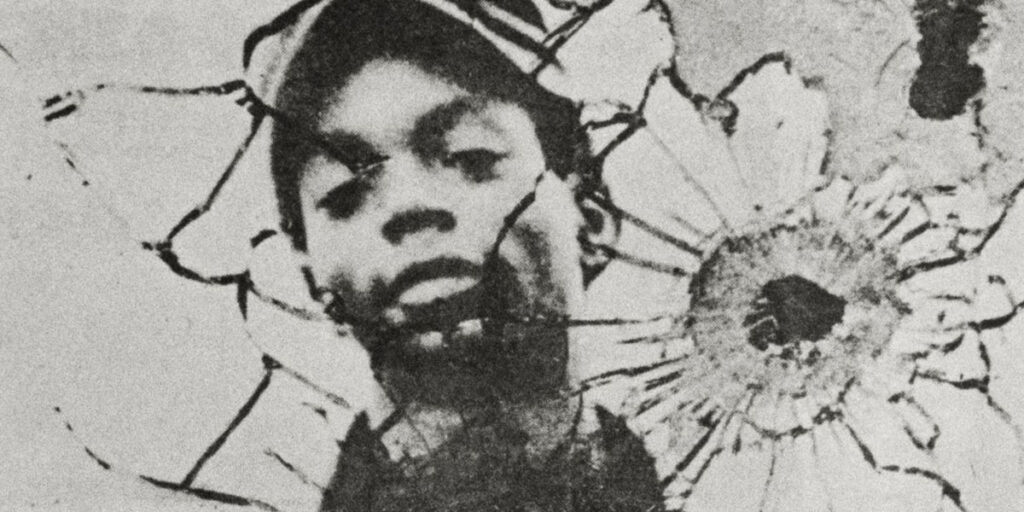
Life After Graduation
After graduating from the DFFB, Norman co-directed On Africa (1970) with Joe Gibbs. Norman was inspired to make the film when he visited West Africa in the late 1960s. In the film, Norman and Gibbs juxtapose German footage with archival photography. Through voiceover, the economic structures of West Africa emerge from the rich resources of the land. On Africa is thematically reminiscent of Norman’s graduate film. This time around, though, there is a stronger specificity to the anti-capitalist rhetoric. The documentary explores the European destruction of societies and cultures and the simultaneous weaponization of Christianity as a justification for colonisation.
Norman would also direct Washington D.C November 1970 and Black Man’s Volunteer Army of Liberation in the same year. The two shorts were initially intended as a single film. The former focuses on the history of Black American struggles. For the film, Norman sourced academic texts such as The Crisis of the Negro Intellectual by Harold Cruse, Black Reconstruction in America by W.E.B Du Bois, Capitalism Plus Dope Equals Genocide by Michael “Cetewayo” Tabor, and On the Ideology of the Black Panther Party by Eldridge Cleaver. In Black Man’s Volunteer Army of Liberation, Norman spotlights a mutual aid network for drug users in Washington. The film contrasts the relationship of substance addiction in Black communities with the history of Black and abolitionist figures in America.
Before moving back home, Norman worked as a director of photography (in collaboration with Reza Dabui) on 1 Berlin-Harlem (1974). The film satirises West German race relations, as told through the point-of-view of a Black American G.I. Best known for its iconic Rainer Werner Fassbinder cameo, 1 Berlin-Harlem shares similar thematic territory with Norman’s oeuvre.
In 1975, Norman returned to the United States where he worked on commissioned films for universities and public institutions. His most notable American production is Spirit to Spirit: Nikki Giovanni (1986). The film follows the titular award winning author as she discusses her involvement with the Civil Rights movement and the Vietnam War. Norman worked as a director of photography on the production.
While producing commissioned non-fiction work, Norman returned to his studies and received his PhD in Anthropology, Sociology, Photography and Cinema from the Ohio State University in Columbus in 1984. He subsequently taught at post-secondary institutions, lectured on subjects such as photography, visual literacy, anthropological research methods, and film theory, and was published in academic journals such as the Visual Anthropology Journal of Cyprus Studies, The Zora Neale Hurston Forum, and Point of View: A Film Journal. Norman later transitioned from filmmaking to working as an ethnographic photographer.
While it’s been about nine years since Skip Norman passed away from his long battle with cancer, his films have now finally been restored and digitised for cultural reference. In years past, Blues People was the only Norman production that was publicly accessible through internet archives. For the first time ever, his work and legacy will soon be widely available. For as long as people engage with his oeuvre, his collaborations and priceless insights on American imperialism, capitalism, and race relations will continue to inspire cinephiles globally.




